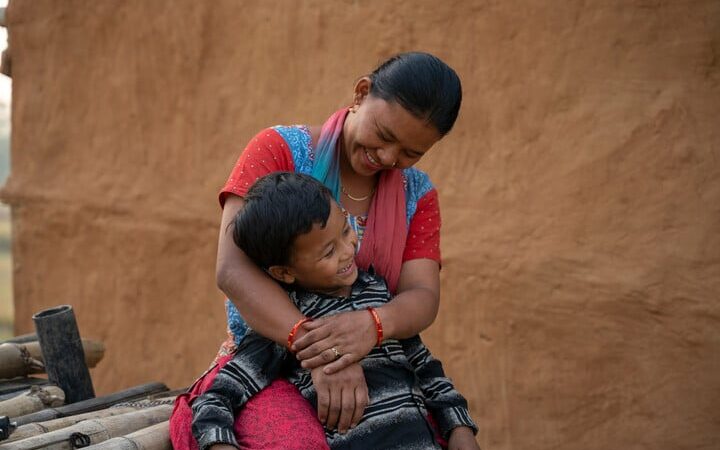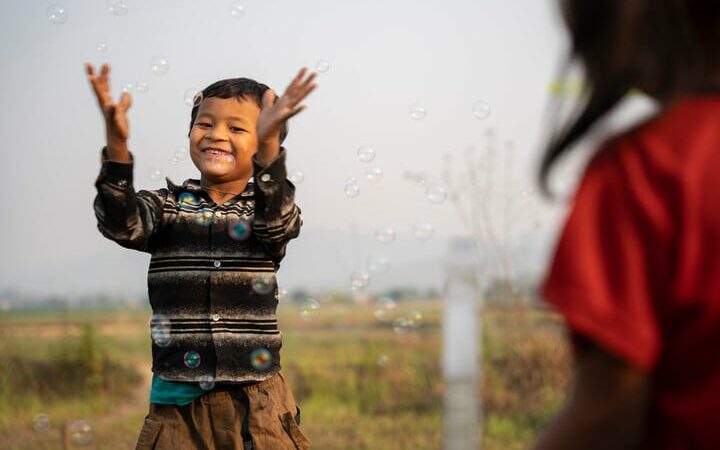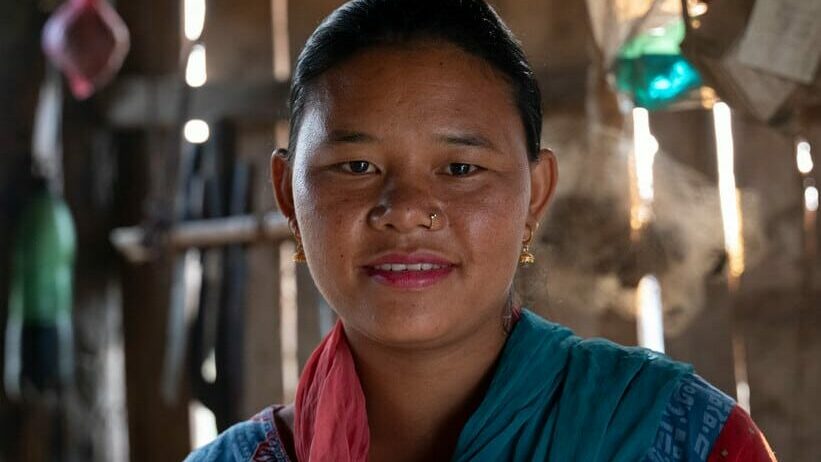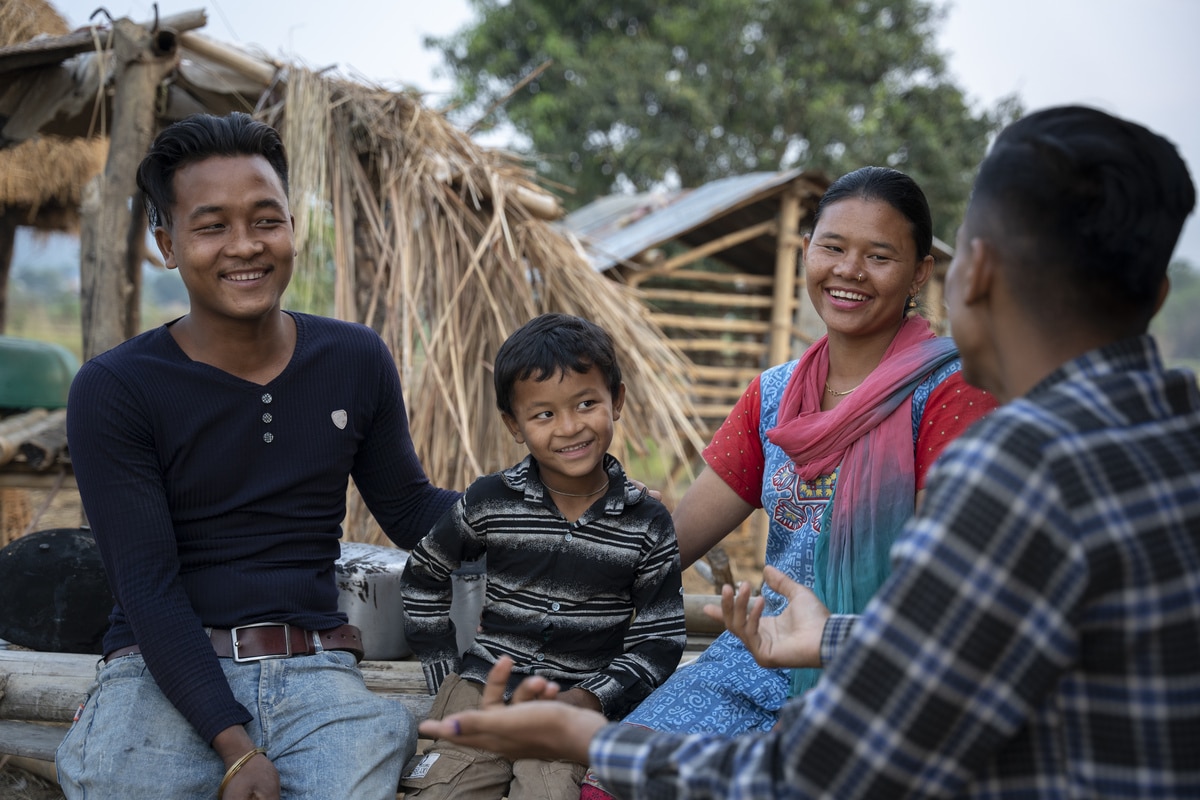“Mummy, I don’t want to go back to the orphanage. I don’t like that place. There are older children there who beat me. Please let me come home.”
These are the words of Sunil*, a young boy from Nepal who was sent to an orphanage. For two long years, Sunil was homesick, lonely and afraid – until we supported his parents to bring him back where he belongs. Home.

Lata never wanted to say goodbye to Sunil. All she wanted was to get her only son an education. But when she sought help, she was persuaded to place him in an orphanage. Sunil was only four.
“My heart ached thinking about him, what he was eating, or whether he was eating at all,” Lata told me. “I’d tell myself that he’s still very young, that keeping him in the orphanage was for the best.”
But what Lata didn’t know is that orphanages don’t help children, they harm them. As the one thing children need most is what no orphanage provides. A loving family. Sunil spent the next two years desperately missing his mum, dad and little sister, Shika*.
The truth about orphanages in Nepal
As a Reintegration Officer for Hope and Homes for Children’s local partners in Nepal, it’s my job to reunite children like Sunil with their families.

Right now, there are over 10,000 children living in 400 orphanages across the country. The sad truth is that 85% of them have families that could take care of them. But instead of receiving support, parents like Lata feel pressured to send their children away. And children like Sunil suffer.
Why Sunil was sent to an orphanage
Sunil’s family is part of the indigenous Chepang community – one of the most marginalised groups in Nepal. Before being pressured to come out of the jungle, the Chepang were self-sufficient, hunting and foraging to survive. Now, with limited income and opportunities, 90% of Chepang families live below the poverty line – earning on average just £39 per person, per year.

Struggling to pay for basics like food and school fees, many Chepang parents worry about how they’ll raise their children. As a result, they buckle under pressure from orphanages to send their children away. Just like Lata did.
“Whenever I’d see him, Sunil used to beg me to take him home,” Lata told me. “He’d cry whenever I’d visit. I felt like crying too.”
Many Chepang children like Sunil are sent to orphanages under the guise of getting an education. But instead, they’re trafficked into orphanages tourist districts – often to help elicit donations from well-meaning, but sadly mistaken tourists.
What Sunil needed more than anything was his family. He needed his home. And that’s exactly what my team set out to find him.
How we reunited Sunil with his family
In partnership with the local government, my team started to work on bringing the children in Sunil’s orphanage back to their families.

After we traced Lata and Hari, Sunil’s dad, I worked with them to find out what they needed to bring Sunil home. Education was their top priority, so we ensured they could afford school supplies for Sunil, including uniform, books and stationery and a daily lunch box for school.
Soon, Lata reclaimed her confidence. “My child needs to know who I am,” she told me. “I need to feel his love, and he needs to feel mine.”
At last, after two long years, they felt ready to bring Sunil home.
Bringing Sunil home
The day Sunil returned was an unforgettable day for the whole family. At last, they were reunited.
“We celebrated by playing music and dancing to my favourite song,” Sunil remembers. “The thing I love most about my mum is when she sings. And I love when my dad plays with me.”

“Things used to be difficult,” Lata told me. “But it’s been easier with all the help we’ve received. I’m very happy. I want to thank the ones who’ve supported us. May they be blessed for looking after the little ones.”
“I’m just so happy that my son has come home,” said Hari. “Today, we play together, eat together and have our ‘us’ time. Thank you so much for making this happen.”
When I see Sunil with his family smiling and being happy, I always imagine this scene of a little baby sparrow who has finally found his way home back to his nest with his mother. It makes me so emotional to imagine this baby sparrow returning back home.

Sunil is just one of 26 children we’ve reunited from 2 orphanages in Chitwan District. But there are still 37 indigenous Chepang children left. We urgently need your help reuniting them with their families.
Thanks to Hope and Homes for Children and our generous supporters, my team is working to bring those children back to their families – and continuing our aims to help close every orphanage in Nepal. So no child has to experience the harm of being cut off from family.
But we urgently need your help. If you can, please make a donation to Hope and Homes for Children today, and help keep children safe from harm.
Donate to our #safefromharm appeal today.
Written by Rohan Bagale, Reintegration Officer with THIS
All Hope and Homes for Children’s work in Nepal is done through supporting two local partners – The Himalayan Innovative Society (THIS) and Forget Me Not (FMN). The National Child Rights Council has acknowledged our collective expertise and efforts and now sees FMN and THIS as leading organisations on childcare reform.
*Names changed to protect identity. | All photos by Kishor Sharma / Hope and Homes for Children
